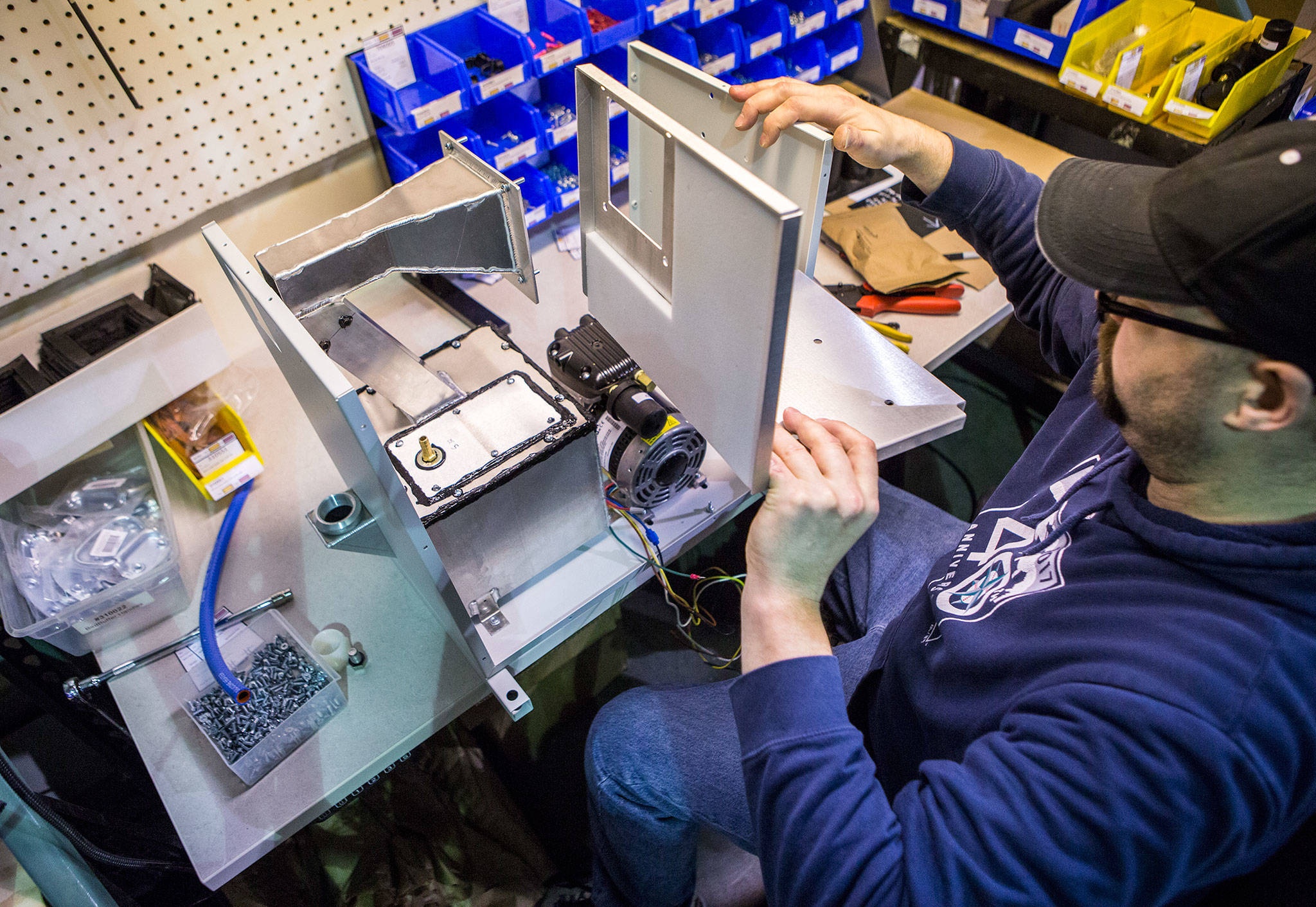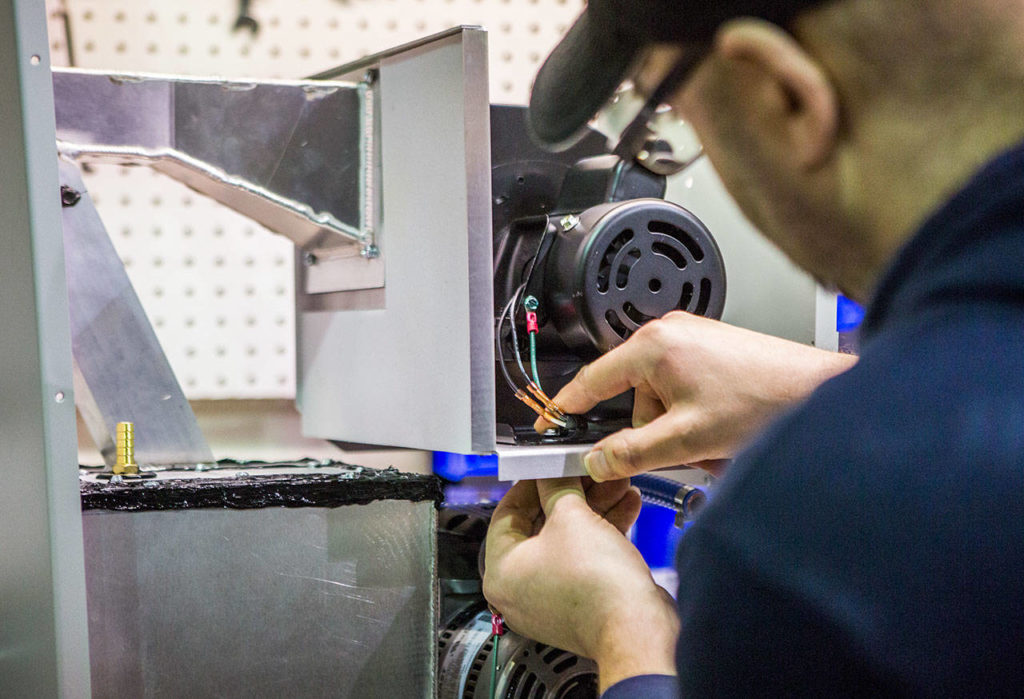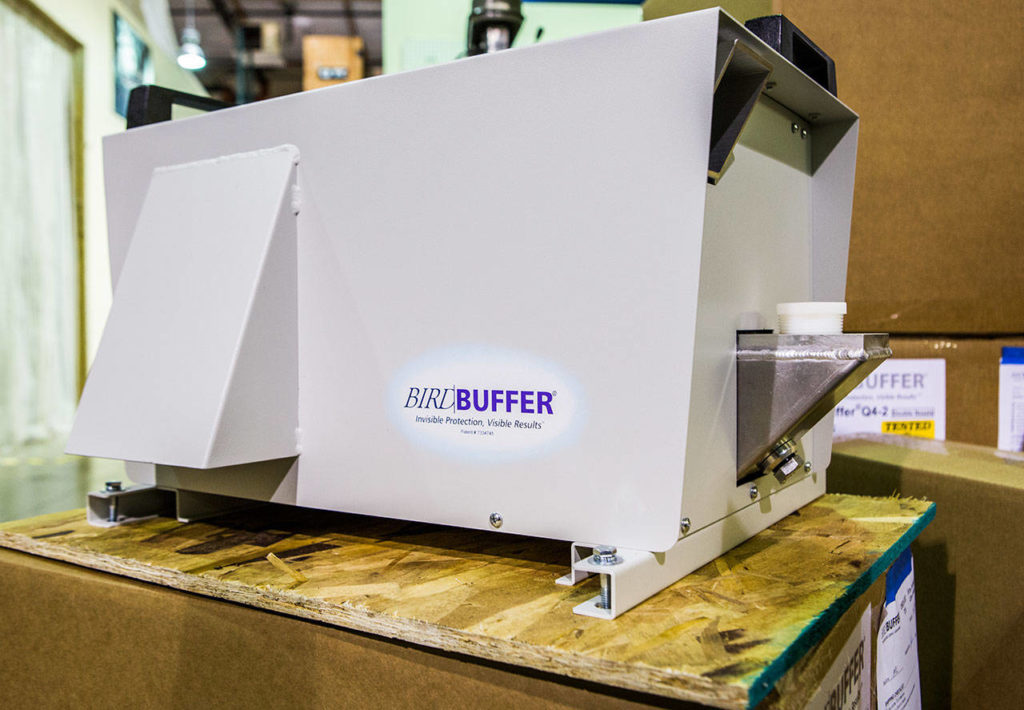This is one of a series of Herald Business Journal stories about the people and companies behind locally made products.
EVERETT—Bird brains they’re not. At a major airport in Singapore, pigeons were tripping the door sensors and flying into the terminal.
Steel spikes? They used them to anchor their nests, said Paul de la Port, president of BirdBuffer, an 18-year-old Everett business.
De la Port and Jason Wilbur, the firm’s vice president, are the bird-control company’s new owners.
Bird Buffer manufactures an environmentally safe device that deters pigeons, starlings and other birds from “hanging around” and posing a health or safety risk.
The product’s inventor and company founder, Gary Crawford, retired and sold the business to de la Port and Wilbur last October.
“The founder was the entrepreneur who perfected the product,” Wilbur said. “We’re here to professionalize the company.”
Now their focus is on money-saving manufacturing and tapping global markets.
Invasive birds in the U.S., such as pigeons and starlings, do millions of dollars worth a damage each year. Starlings, which can gather in flocks of one million birds, can devour up to 20 tons of potatoes in one day, according to a 2010 report in Time magazine.
Crawford, a pigeon fancier and animal lover, discovered that a concentrate made from grapes skins could keep birds at a distance.
The grape-like scent irritates them and discourages them from roosting.
The concentrate, used by the food industry to flavor lollipops, candy and soda, is considered safe for humans and animals.
Crawford, who created special effects for movies, built a machine that sprays the compound as a fine, dry vapor.
“It doesn’t harm the birds,” said Brooks Smothers, the firm’s marketing and communications manager. “They shake it off and say that was no fun — I don’t want to go back there,” Smothers said.
Control methods that employ nets, spikes and poison are inhumane and kill birds, de la Port said.
Birds can pose a public health risk at outdoor food courts and food processing plants, where they fly in through open loading docks.
Their droppings are a potential source of salmonella and other bacteria that can cause illness and, in some cases, death.
Utility substations — coveted nesting sites — are another place where droppings can wreak havoc, de la Port said.
“The heated steel is like a Manhattan apartment to birds,” he explained.
The buildup of bird poop, a fire hazard, can trigger power outages and cause millions of dollars worth of damage.
Inside airplane hangars, bird droppings can ruin expensive paint jobs and interfere with commercial aircraft repair.
The device, designed primarily for commercial and industrial use, is available in three sizes. The units are manufactured at BirdBuffer’s south Everett facility, which employs about 20.
The smallest unit, about the size of shoebox, can handle food courts, stairwells and areas of up to 5,000 square feet, Smothers said.
The mid-size machine provides coverage for about a half-acre. The largest, the size of a mini-fridge, can create a buffer zone of up to an acre.
All three models dispense the company’s patented vapor concentrate at intervals, Smothers said.
A medium-size unit uses a half-gallon of concentrate a month; the largest, about a gallon.
Users can “set it and forget it,” de la Port said.
BirdBuffer is also working with a solar installation in California to save birds. Besides generating power, large solar farms generate tremendous heat.
“The birds fly in there — chasing insects — and just die,” de la Port said.
Mitch Corter, technical sales manager, said units were installed at the solar farm in 2014.
“Bird deaths have fallen from about 400 a week to 10 a week,” Corter said.
The company website features testimonials from shopping malls, food processors and architects.
Because no one wants to admit to having a bird-poop problem, some names have been omitted, Smothers said.
In one instance, the device has replaced umbrellas, a Reno bus terminal manager said.
“With BirdBuffer operating, we were finally able to stop passing out umbrellas to stop the bird droppings from hitting our passengers lining up for buses.”
Janice Podsada; jpodsada@heraldnet.com; 425-339-3097; Twitter: JanicePods
Talk to us
> Give us your news tips.
> Send us a letter to the editor.
> More Herald contact information.



























